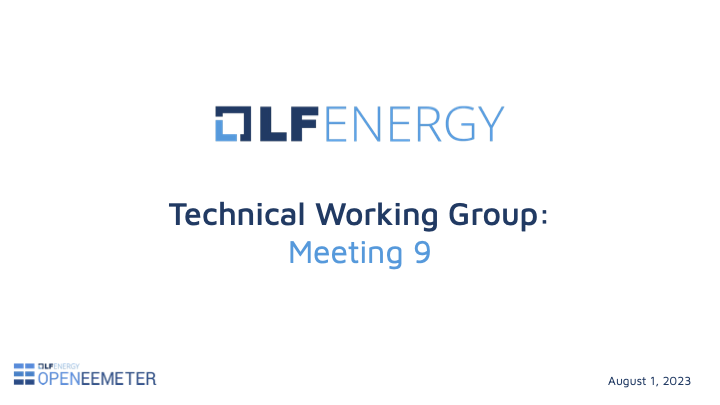|
Thanks to everyone who joined us for this week's OpenEEmeter working group.
Adam Scheer led off this week with a discussion of wrapping up the CalTRAck 2.1 daily model and beginning work updating the hourly model in preparation for CalTRACK 3.0. CalTRACK 2.1 makes significant improvements on accuracy and computational efficiency over CalTRACK 2.0 daily (speeds are up to 100 times faster). This is a huge improvement and will make the methods evne more valuable across a variety of use cases. Next steps for CalTRACK 2.1 include releasing detailed model specifications and updating the OpenEEmeter to incorporate CalTRACK 2.1. Adam then explained how the CalTRACK 2.0 hourly model works, what some of its limitations are, and why we need more adaptable approaches to address modern demand-side programs including electric vehicles, heat pumps, solar + storage, and other load shifting approaches. To begin work on the CalTRACK 3.0 hourly methods, the team has initiated a literature review aimed at understanding the current state of the art and the latest technological advancements and modeling techniques that have emerged in the past few years. Armin Aligholian explained some of the approaches explored, including load simulation software, statistical learning, machine learning, and Baysean methods. Next steps:
Next Meeting Scheduled: Tuesday, September 5th, 1pm PT. Watch the full presentation and download the slides below.
0 Comments
|
The purpose of this blog is to provide a high-level overview of CalTrack progress.
For a deeper understanding or to provide input on technical aspects of CalTrack, refer to the GitHub issues page (https://github.com/CalTRACK-2/caltrack/issues). Recordings
2019 CalTRACK Kick Off:
CalTRACK 2.0 July 19, 2018 June 28, 2018 June 7, 2018 May 24, 2018 May 3, 2018 April 12, 2018 March 29, 2018 March 15, 2018 March 1, 2018 February 15, 2018 February 1, 2018 Archives
March 2024
|
||||||


 RSS Feed
RSS Feed
